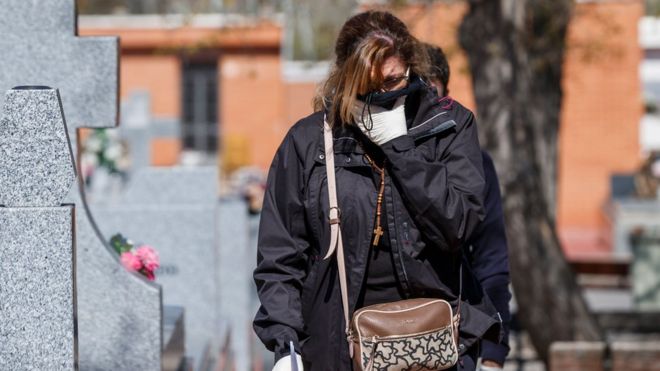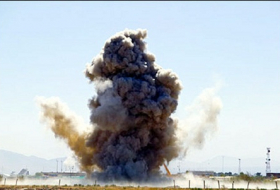Spain has recorded another 864 deaths related to coronavirus, the highest in one day, as the total number of deaths across Europe has gone beyond 30,000, BBC reported.
More than 9,000 people have died in Spain, which is second only to Italy in fatalities caused by the virus.
Confirmed cases in the country have passed 100,000, but numbers show the infection rate continues to fall.
UN Secretary General António Guterres said the pandemic was the world's biggest challenge since World War Two.
The warning comes amid dire predictions about the possible economic impact of measures imposed to fight the virus. A UN report estimates that up to 25 million jobs could be lost around the world as the result of the outbreak.
The number of confirmed cases around the world is now over 870,000, with more than 43,000 deaths, according to data compiled by Johns Hopkins University.
Follow our latest updates on the coronavirus crisis
Wednesday's number of deaths in Spain was marginally higher than the 849 announced the day before, and the country has now seen more than 800 deaths for five days in a row. But health officials believe the latest 12% increase in daily infections is further evidence that the rate has stabilised.
Spain has been in lockdown for over two weeks, with further restrictions on movement introduced two days ago. But health services in the hardest-hit areas, including Madrid and Catalonia, are still struggling, with shortages of medical equipment a particular problem.
Italy remains the worst-affected country, with a total of 105,792 cases and 12,428 deaths reported up to Tuesday evening, while Spain has 102,136 cases and 9,053 deaths. However, Italy has seen the daily rise in infection rates fall to 2.8%, well down on a few days ago.
The number of fatalities in the US has now topped 4,000, and Iran says Covid-19 - the disease caused by coronavirus - has claimed 3,000 lives. Belgium said more than half its intensive care beds were occupied as it reported a rise of 123 deaths, bringing the country's death toll to 828.
Meanwhile, the Nato military alliance said it remained in "a state of operational readiness" to defend the borders of its members despite the pandemic, although it had cancelled a number of exercises to prevent the spread of infection.
What did Mr Guterres say?
Speaking at the UN headquarters in New York Mr Guterres said: "The new coronavirus disease is attacking societies at their core, claiming lives and people's livelihoods".
He said it could bring a recession "that probably has no parallel in the recent past".
"Covid-19 is the greatest test that we have faced together since the formation of the United Nations," he said, calling for "an immediate co-ordinated health response to suppress transmission and end the pandemic".
Mr Guterres urged industrialised nations to help those less developed, or potentially "face the nightmare of the disease spreading like wildfire".
African finance ministers have appealed for $100bn (£80bn) in emergency financing, with debt relief from the International Monetary Fund, World Bank and European Union.
Manufacturing output in the UK in March hit its lowest point since 2012, and unemployment in Austria has soared 52.5% on March last year to its highest level since 1946. The crisis has not yet filtered through to Italian job levels with employment in February slightly down at 9.7%.
More about: Spain
















































